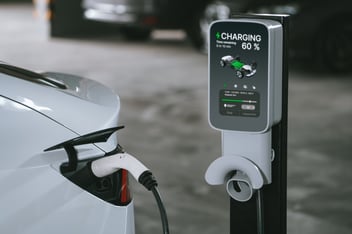

How a connected car benefits the consumer
The Internet of Things is helping to turn the concept of a connected car into a reality with aid of 4G LTE. Along with emerging 5G networks, we will see new opportunities for the connected car.
To bring connectivity to their vehicles, automobile manufacturers are partnering with telecom companies. Vehicles will then interact with each other and coordinate with road infrastructure.
Benefits of the Connected Car
The consumer experience many benefits and value from connected cars, such as;
Real-Time Alerts. Your car will alert you of its condition, and remind you to take it to the service centre.
In-Car Content and Services. Using 4G LTE and emerging 5G networks connected cars can deliver popular content.
Streaming services such as Spotify and Hulu have become available. Consumers will have access to a huge choice of digital content using infotainment.
Already there is a battle between Apple and Google for the Infotainment standard;
- Apple’s Car Play uses the familiar iOS experience with voice-activated Siri. Giving access to third-party apps available in the App Store.
- Android Auto can stream music from Google Play Music straight into your car. Google Now gives you a voice-activated ability to interact with the infotainment system. This makes it easy to access your favourite apps and content in the car.
New partnerships are forming all the time to enable the concept to become a reality. For example, Ford has partnered with Amazon to bring the Alexa engine to the car.
Safety Benefits of Connected Cars
Advanced Smart Navigation. Connected cars use smart navigation which used location-based services. What does this mean for the consumer? Your car will alert you when you need to stop off at the next petrol station based on current fuel levels. It will then find the nearest petrol station on your smart navigation system.
Real-time traffic and weather conditions best route to destination recommendation is very useful.
Smart technology can learn from other car driver behaviours and preferences. These include community recommendations for the best restaurant based on your location and ratings.
Driver & Passenger Safety. A key benefit of connected cars is external and internal driver hazard warnings. Sensors around the vehicle are connected to the central monitoring system. This will then alert you to the health of the car and hazardous road conditions.
It can help to avert collisions by tracking the speed and proximity of other vehicles. Further safety features include alerting the drive of fatigue and tiredness. It can even optimize the temperature, music, and seat functions to ensure that the driver is alert.
Fuel and Cost Efficiency. Greater fuel efficiency using more economic driving methods is achieved by communicating with traffic signals. This then allows you to slow down before a signal. And even stop and start the car before the lights turn green.
Car Insurance companies are already using black boxes to track driver patterns. Connected cars also do this, along with assessing the wear and tear of the vehicle. Insurance companies can then calculate premiums based on usage and maintenance. As a result, giving the consumer the best value for money.
Embedded Velos IoT SIMs for Secure Global Connectivity
Embedded Velos IoT SIMs identify individual vehicles, encrypt communications and ensure secure global connectivity for connected cars. Utilising our open roaming multi-network roaming technology enables automobile manufacturers to future-proof their vehicles.
Find out how we can help
Email us today to speak to a Velos IoT expert.
Speak to a Velos IoT expert
Related articles


Cellular IoT-enabled connected worker technology and its use cases
Workplaces are more connected than ever. Workers expect real-time communication with each other and...

How Does an IoT-Connected EV Charging Station Work?
The electric vehicle (EV) revolution is in full swing, rapidly reshaping the automotive industry....

